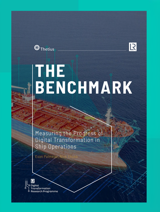Collaboration and partnerships
- Maritime energy transition
- Maritime Decarbonisation Hub

Collaboration between stakeholders from across the shipping value chain is crucial to ensuring the industry can navigate the energy transition safely and sustainably. Lloyd’s Register and Lloyd’s Register Foundation are already partnering in collaborative initiatives and partnerships which will be strengthened by the Maritime Decarbonisation Hub.
The Silk Alliance
The Silk Alliance is a coalition of 13 leading cross-supply chain stakeholders brought together by the LR Maritime Decarbonisation Hub to develop a fleet fuel transition strategy that can enable the establishment of a highly scalable Green Corridor Cluster, starting with the intra-Asia container trade in Singapore and the wider Asia region.

Sustainable Shipping Initiative
The decarbonisation of the shipping industry has been an area of strategic focus for Lloyd’s Register for over a decade. In 2011, we were a founding member and the first classification society to join the Sustainable Shipping Initiative. It brings together leading organisations to improve the sustainability of the shipping industry in terms of social, environmental and economic impacts.
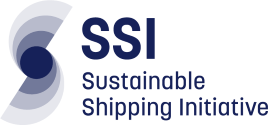
UN Global Compact ‘Sustainable Ocean Business’ Action Platform
The United Nations Global Compact is a worldwide movement of sustainable companies and stakeholders, working for responsible business principles and achievement of the UN Sustainable Development goals. Lloyd’s Register is a signatory to the UN Global Compact, which encourages businesses worldwide to adopt sustainable and socially responsible policies, and to report on their implementation.
Lloyd’s Register is a founding member of the UN Group for Sustainable Ocean Business, which convenes leaders in ocean industry along with the UN, world governments, academia and civil society to work towards the sustainable use of the oceans.
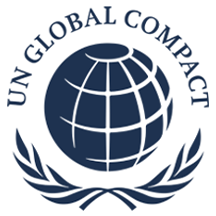
The Getting to Zero Coalition
The ambition of the Getting to Zero Coalition is to have commercially viable ZEVs operating along deep sea trade routes by 2030, supported by the necessary infrastructure for scalable zero-carbon energy sources including production, distribution, storage and bunkering.

The Castor Initiative
A collaborative effort to work on producing a zero-carbon emitting deep-sea tanker using ammonia as a fuel. The Joint Development Project (JDP) involves a collaboration between Lloyd’s Register, MISC Berhad, Samsung Heavy Industries and MAN Energy Solutions, Yara International ASA, and the Maritime and Port Authority of Singapore (MPA).
Poseidon Principles
Lloyd’s Register supports financial incentivisation and innovation in the global shipping industry. It assisted in the creation of the Poseidon Principles, a global framework for responsible ship finance, that provides a pathway for integrating climate considerations into lending decisions, to promote decarbonization in international shipping.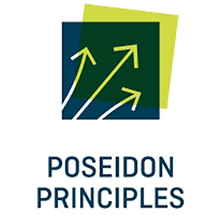
Resilience4Ports
The Resilience Shift was created by Lloyd’s Register Foundation and Arup, who have come together to assure the future of critical infrastructure. Their Resilience4Ports initiative is a multi-stakeholder, whole system approach to enhance the resilience of global supply chains.
Resilience4Ports takes place in the context of the multiple global drivers of change to critical infrastructure systems that ports and supply chains face, in particular decarbonisation technology and climate change. The initiative brings together public and private stakeholders together to define shared societal, environmental and economic outcomes.

University Maritime Advisory Services (UMAS)
In partnership with the UK’s University Maritime Advisory Services, Lloyd’s Register published a series of studies on low carbon transitions pathways, focusing on engine development, vessel design and operational implications relating to the decarbonisation ambitions set out by the International Maritime Organisation (IMO). They identified milestones for the safety, technical, social, economic and environmental aspects of deep-sea, zero-emission vessels. They are available to download on our library page.

Nautilus (Nautical Integrated Hybrid Energy System for Long-haul Cruise Ships)
Passenger ships are the most affected by the 2030 GHGs emission targets of the IMO directive as they have growing pressure from their customers and habitants near ports for a clean environment. To address these challenges, the Nautilus project aims at developing, evaluating and validating a highly efficient and dynamic integrated marine energy system fuelled by Liquefied Natural Gas (LNG) for long-haul passenger ships. The Nautilus consortium consists of 15 partners with an overall budget of €7.89M over four years with 100% grant from the EU’s Horizon 2020 research and innovation programme. Read more about Nautilus.
FASTWATER
FASTWATER aims to start a fast transitionary path to move waterborne transport away from fossil fuels and reduce its pollutant emissions to zero impact, through the use of methanol fuel. The FASTWATER consortium consists of 15 partners with a strong track record on methanol projects and includes shipyards, a shipowner, engine manufacturers, an equipment supplier, a classification society, a methanol producer, a major port and research institutes. The project has an overall budget of €6.35M over four years with a grant of €4.99M from the EU’s Horizon 2020 research and innovation programme. Read more about FASTWATER.
ISHY
The Interreg 2 Seas project, ISHY, started in February 2019 with 15 partners and 45 observer partners across Europe and will continue until the end of 30 June 2022. ISHY aims to increase the adoption of low-carbon technologies and applications in sectors that have the potential for a high reduction in greenhouse gas emissions. With 15 partners, the overall budget for this collaborative project is €15.98M with a maximum European Regional Development Fund (ERDF) of €8.8M. Read more about ISHY.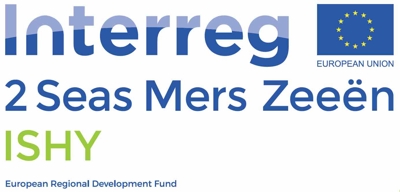
HyMethShip
The HyMethShip project aims to drastically reduce emissions and improve the efficiency of waterborne transport at the same time. During the three-year project duration, the HyMethShip project will undertake risk and safety assessments to ensure that the system fulfils safety requirements for on-board use. It will also consider the rules and regulations under development for low flashpoint fuels. With 13 partners, the overall budget for this collaborative project is €9.28M with a maximum European Grant of €8.43M. Read more about HyMethShip.
Vancouver Maritime Centre for Climate
The Vancouver Maritime Centre for Climate (VMCC) is an industry-led initiativeVMCC Logo White.png dedicated to accelerating the transition to a zero-emissions shipping industry in the province of British Columbia, Canada. Through collaboration and information sharing it facilitates the creation of joint industry projects that enable the regional maritime and shipping industry to decarbonise.

Blue Sky Maritime Coalition
The Blue Sky Maritime Coalition is accelerating the transition of waterborne transportation in Canada and the United States toward net-zero GHG emissions. It does this by facilitating collaboration among industry stakeholders regionally to create projects that deliver significant near-term reductions in GHG emissions and lead to commercially viable net-zero emissions.






